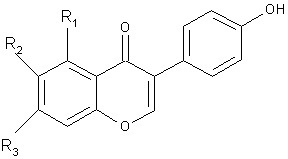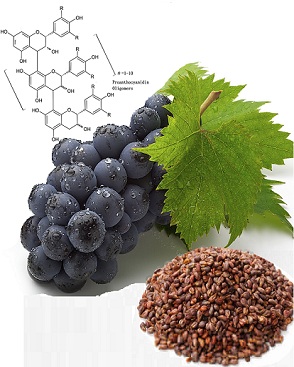- Plant-Based Protein
- Natural Plant Flavours
- Food and Dietary Supplement Ingredients
- Fruit Juice Powder
- Animal Nutrition Ingredients
- Water Soluble Ingredients
- Cosmetic Ingredients
- Unveiling the Therapeutic Potential of Rabdosia Rubescens: A Comprehensive Review
- What are the medicinal properties of Rabdosia Rubescens?
- Nutritional value of Orange Juice Powder compared to fresh orange juice.
- Processing Conditions and Nutritional Value of Orange Juice Powder
- Exploring the Versatility of Herbal Extracts in Food Flavors

What are the health benefits of hawthorn leaf?
Welcome to our blog! Today, we are diving into the world of hawthorn leaf and uncovering its incredible health benefits. Whether you're a fan of herbal remedies or simply curious about natural alternatives, hawthorn leaf is definitely worth exploring.


Soybean Extract (Soybean Isoflavones) and benefits,side effect, uses,dosage, Phytoestrogen
Soy isoflavones are a kind of phytoestrogen. The main isoflavones in soy are genistin, daidzin and glycitin.Soy isoflavones have been reported to possess numerous physiological properties, such as antitumor, anti-menopausal osteoporosis and anti-aging. They have also been reported to improve learning and memory skills in menopausal women and aid in the prevention and treatment of heart disease, diabetes.
What you may get from us: If you're developing a product that contains Soy Isoflavones .I think you can find the information or products you need here.
Simple production process in our factory: After the plant is collected, raw material will be processed by solvent extraction, separation and purification, filtration, concentration, purification,drying and other steps to form the final products. We may also design a prouction process based on your special requirements.
Through the physical and chemical processes, those compunds you don't want was removed, and the compunds preferred was accumulated. Which make the products achieve the best effects.
How to use Soy extract powder: What you need is just use our products to formulate your products. It can be mixed with your other ingredients directly to make premix products. It can also be directly used for filling capsules or making tablets. And if your dosage form is tincture or solution, It can also be suitable. Easy to say, our products are ready for Formula products.
|
Soybean Extract (Soybean Isoflavones) |
||
|
CAS No. |
574-12-9 |
|
|
Appearance |
Powder |
|
|
Color |
Light Yellow to Light Brown |
|
|
Partical size |
Normally pass through 80mesh |
|
|
Pack size |
25 kg per paper drum |
|
|
Purity of active compunds |
Isoflavones 40%, 80% |
By HPLC |
|
For pricing or more information, please call 86 29 88444632 or send an email to Sales@nutraherbsource.com |
||
General Information
Latin Names: Glycine max
Constituents of SoyBean:
Soy contains many types of isoflavones, but the most beneficial are Genistin, Genistein, Daidzin,Daidzein, Glycitin and Glycitein. The highest amounts of soy isoflavones can be found in soy germ and cake.

|
R1 |
R2 |
R3 |
Isoflavone |
|
H |
H |
OH |
Daidzein |
|
OH |
H |
OH |
Genistein |
|
H |
OCH3 |
OH |
Glycitein |
Suggested Properties:
The chemical structure of isoflavones is very similar to that of our own estrogen. Because of this similarity in structure, they can interfere with the action of our own estrogen. Depending on the type of estrogen receptor on the cells, isoflavones may reduce or activate the activity of estrogen. Isoflavones can compete with estrogen for the same receptor sites thereby decreasing the health risks of excess estrogen. They can also increase the estrogen activity. If during menopause the body's natural level of estrogen drops, isoflavones can compensate this by binding to the same receptor, thereby easing menopause symptoms as a result.
Isoflavones and Estrogen:
Estrogens are hormones that influence sexual and reproductive development, primarily in women. Having a similar structure to estrogen allows isoflavones to bind with estrogen receptors. Depending on the hormone status of a person, isoflavones can affect a person in the same way that estrogen does by producing either estrogenic or antiestrogenic effects.
In studies involving isoflavone supplements for menopausal symptoms, some benefit has been shown, such as improving fatigue and irritability and decreasing hot flashes.But, according to The Pharmaceutical Journal, although isoflavones are being marketed as an effective product for natural hormone replacement therapy (HRT), further research is needed and consumers should NOT use isoflavones for long-term HRT until more research is done to prove the safety and efficacy of the products.
In addition to providing menopause relief, isoflavones are said to prevent some types of cancer and protect the heart. Several studies have shown that soy protein supplementation (containing isoflavones) reduces both the total and low density (LDL) cholesterol in animal and human studies.
But there are conflicting study results on isoflavones—some showing benefits to health and others indicating harmful side effects.
Some case reports indicate that isoflavones in red clover help reduce hot flashes and anxiety during menopause. Although the herb is marketed as a dietary supplement called Promensil, the National Women’s Health Network reports that there is a lack of sufficient clinical research data to back up these claims. Red clover has, however, been found to have a cardiovascular benefit, raising good cholesterol called HDL.
Health Benefits of Soy Isoflavones:
Research in several areas of healthcare has shown that consumption of isoflavones may play a role in lowering risk for disease. They can fight disease on several fronts. The following potential health benefits are attributed to isoflavones:
1.Ease menopause symptoms :
The benefits of soy go beyond reducing long-term cancer risk. Recent studies have found that soy isoflavones can reduce menopause symptoms such as hot flushes and increase bone density in women. Indeed, many menopausal and post-menopausal health problems may result from a lack of isoflavones in the typical Western diet. Although study results are not entirely consistent, isoflavones from soy may be helpful for symptoms of menopause. A study carried out by "Health Test" in 2004 investigated the prescription behaviour of 27 doctors for women with menopause symptoms. It showed that isoflavones were recommended twice (44%) as often as hormonal treatment (22%). The prescribed supplements were mainly based on the following plants: soy, black cohosh and hops.
2.Reduce heart disease risk:
Soy isoflavones also appear to reduce cardiovascular disease risk via several distinct mechanisms. Isoflavones inhibit the growth of cells that form artery clogging plaque. These arteries usually form blood clots which can lead to a heart attack. A review of 38 controlled studies on soy and heart disease concluded that soy is definitely effective for improving cholesterol profile. There is some evidence that isoflavones are the active ingredients in soy responsible for improving cholesterol profile.
3.Protect against prostate problems
Isoflavones may be benificial for men's health because they may protect against enlargement of the male prostate gland. Studies show isoflavones slowed prostate cancer growth and caused prostate cancer cells to die. Isoflavones act against cancer cells in a way similar to many common cancer-treating drugs.
4.Isoflavones improve bone health
Soy Isoflavones help in the preservation of the bone substance and fight osteoporosis. This is the reason why people in China and Japan very rarely have osteoporosis, despite their low consumption of dairy products, whereas in Europe and North America the contrary happens. Unlike estrogen, which helps prevent the destruction of bone, evidence suggests that isoflavones may also assist in creating new bone. Other studies are not entirely consistent, but evidence suggests that genistein and other soy isoflavones can help prevent osteoporosis.
5. Reduce cancer risk
Isoflavones seem to be protect agains tumors because thet act against cancer cells in a way similar to many common cancer-treating drugs. Population-based studies show a strong association between consumption of isoflavones and a reduced risk of breast and endometrial cancer. Women who ate the most soy products and other foods rich in isoflavones reduced their risk of endometrial cancer by 54%.
Precautions:Risks of soy isoflavones
Despite the considerable enthusiasm regarding the potential health benefits of soyfoods and isoflavones, there is also growing concern regarding their safety, based largely on their estrogen-like properties. Isoflavones are classified as phytoestrogens and mixed estrogen agonists/antagonists as well as endocrine disruptors. Evaluations of isoflavone safety have been conducted by governmental and quasi-governmental agencies in several European countries, Japan and Israel and the European Food Safety Authority is currently conducting another evaluation. These concerns are based almost exclusively on in vitro and animal studies (human studies, including clinical and epidemiological data, are supportive of safety) and the most notable among these is that isoflavone-containing products pose a risk to estrogen-sensitive breast cancer patients and women at high-risk of developing this disease and that isoflavone exposure via the consumption of soy-based infant formula may negatively affect the long-term development of infants.
Possible Side Effects:
Most of the side effects of isoflavones are associated with long-term use of supplements and not from dietary sources such as soy products. But epidemiological (the branch of medicine dealing with the incidence and control of disease) data have shown that there is a link between long term soy consumption and Kawasaki disease (KD), and that soy isoflavones are involved in the development of the disease.
Another study discovered that exposure to soy-based infant formula resulted in negative effects on the long-term development of infants.
Breast cancer cell growth has been linked with long-term exposure to genistein, resulting in what is called “soy protein isolate-induced tumors and advanced growth phenotypes.”
Animal studies have shown that evidence of the isoflavone genistein may have adverse effects on the developing female reproductive tract.
When ingested on a short-term basis (up to six months in duration) soy is considered possibly safe. Common side effects may include:
GI upset
Constipation, bloating and nausea
Allergic reactions (involving rash, itching, and in severe instances, anaphylaxis)
Loss of appetite
Swelling of the ankles and abdominal tenderness have been noted in high doses of isoflavones of four to eight milligrams per kilograms (mg/kg).
Long-term use of soy extract supplements may result in abnormal tissue growth in the uterus.
Dosage:
The following doses are backed by clinical research studies:
For postmenopausal women: A supplement with least 54 mg of genistein (a soy isoflavone) per day is suggested for hot flashes.
For IBS: A supplement of 40 mg of isoflavones per day for six weeks
For protection against osteoporosis: A supplement of 80 mg per day of soy isoflavones was associated with a dosage that reduced bone loss in postmenopausal women (protecting against osteoporosis).
For general supplementation: using a daily dose of 40 to 120 mg of soy isoflavones per day.
- Prev:Grape Seed Extract (OPC) and benefits,side effect, uses,dosage,Natural Anti-Oxidant
- Next:St. Johns wort Extract and benefits,side effect, uses,dosage, Anti-Depression











